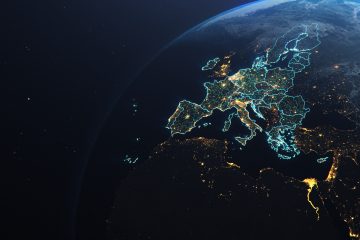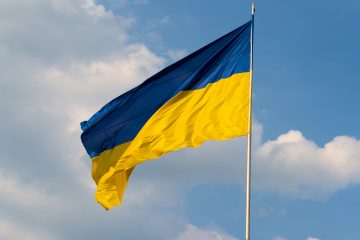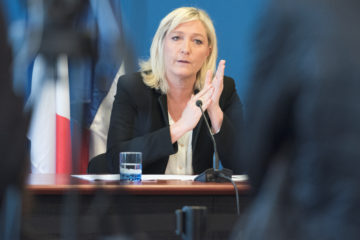
Review of Sehenden Auges: Mut zum Strategischen Kurswechsel (With Eyes Wide Open: The Courage for a Strategic Course Change) by Dr. Stefanie Babst
Just over a year after Russia’s invasion of Ukraine in February 2022, Dr. Stefanie Babst, who has held several senior positions at NATO, including heading its Strategic Foresight Team from 2012 to 2020, has published her latest book, Sehenden Auges: Mut zum Strategischen Kurswechsel (With Eyes Wide Open: The Courage for a Strategic Course Change). The book is an important call for critical reflection and course correction among NATO partners and a plea for the West to continue to support Ukraine, not least in its own interests. The first part of the book contextualises Russia’s war on Ukraine. The author explains Putin’s rise to power, the workings of his power apparatus, and Moscow’s strategic objectives. Babst provides the reader with …

Who governs? When and why governments appoint technocrats?
One of the most critical questions of modern comparative politics is: who governs? The first thing that would come to mind would be party politicians. However, transformations in several European countries’ governmental arena indicate that partisan presence in office, and, more broadly, the general model of party government, characterised by parties’ centrality in representing the needs and demands of citizens, is in decay. Such a decline owes much to the increased government involvement of technocratic personnel – i.e., ministers with no political affiliation. Indeed, while Italy established itself as the promised land of technocracy, currently led by Mario Draghi and by four technocratic prime ministers in the last two decades, technocratic ministers have also entered the last three partisan governments …

The Italian elections and the threat to European integration
The Italian right, led by the Brothers of Italy, is likely to be in government after the September 2022 elections. Despite its public statements expressing ‘full support’ for the European integration process, Giovanni Capoccia says that there are good reasons to question the exact nature of this commitment Italy heads right Mario Draghi’s successor after the general election in Italy on 25 September will likely be the leader of the right-wing party Fratelli d’Italia (Brothers of Italy), Giorgia Meloni. Currently polling at 23–24% of the vote, the party is the largest member of the centre-right coalition. In this coalition, the ‘right’, which includes the League (Lega, currently 13–14% in the polls), dominates the ‘centre’. The alliance is expected to secure a clear majority of seats …

A Marshall Plan for Ukraine?
As policymakers and commentators grapple with understanding the direction of Russia’s invasion of Ukraine, they turn to the past for guidance. Are we at the beginning of a more general war –1914 or 1939? Or is the experience of how major wars end a guide? The Marshall Plan of 1948-1951 is all over the news as discussions get under way about the hoped-for recovery of Ukraine. “The war in Ukraine has caused the world, particularly the west, to look to the past for answers…. Marshall Plan history is no longer a niche,” says the Financial Times’s Gillian Tett. EU Commissioner Johannes Hahn, Prime Minister Boris Johnson, magazines like New Statesman, and think tanks like the Center for Economic and Policy …

Takeaways from the Vote of No Confidence: What it means for Boris Johnson, the Conservative Party, and Britain
On June 6, Prime Minister Boris Johnson survived a vote of no confidence from the Parliamentary Conservative Party. The vote was triggered by 15 percent of Tory Members of Parliament (MPs) writing to the chair of the 1922 Committee, which represents backbenchers. Thus far, six of the last nine leaders of the Tory Party have faced a leadership challenge of some sort while in office. Yet, while Johnson has joined the list of leaders who survived such a vote, the results of the ballot show that his leadership of the party in the long term remains precarious. How bad were the results? While the relatively low threshold for a vote means Johnson is far from the first leader to face …

Can Marine Le Pen win the French Presidency?
This piece is based on an article first published on The Loop, ECPR’s Political Science Blog. With the 1st round of the French presidential elections only a few days away, the incumbent Emmanuel Macron (La République en Marche) continues to lead the polls (opinion-way.com) with 26-27% of vote intentions, followed by Marine Le Pen (Rassemblement National) at 22-23% and with Jean-Luc Mélenchon (La France Insoumise) in third place at 16-18%. All the other candidates seem out of the race. Even those who were once seen as possible contenders, in particular Éric Zemmour (Rêconquete) and Valerie Pécresse (Les Républicains) trail at around 9-10%, with little chance of qualifying for the 2nd round. Last autumn, a repeat of the 2017 Macron-Le Pen duel …
Within the EU, Redistributive CAP Mechanisms Can Make a Big Difference for Small Farms
The proverbial thunderclouds are finally dispersing over the fields and farms of Europe. The protracted negotiations over the European Union’s next Common Agricultural Policy (CAP) budget, which began in 2018, finally concluded in June with a provisional agreement between the EU’s Commission, Council, and Parliament. While the storm is not officially over – Parliament must ratify the deal in the coming autumn – the warring factions have retreated to lick their wounds for the time being, with both environmentalists and small farmers frustrated that the final proposals either did not address their demands or did so in a watered-down fashion. Of particular concern to small farmers’ groups is the mandatory implementation of policies designed to redistribute CAP funds and level …
A Very Spanish Coup: What Can America Learn from the 1981 Spanish Coup
The storming of the American Capitol building on the 6th of January 2021 during a session to formalize Joe Biden’s presidential victory made headlines around the world. For many Americans, the fact that there was an armed attempt to disrupt a democratic transition of power was a worrying sign of democratic backsliding and the consequence of years of extreme partisanship. The siege suggested a grim vision of America’s political future. However, 40 years ago, the Spanish political system was able to recover from a similar event, in what could be an instructive experience for contemporary America. In February 1981, the Spanish political system, which had rapidly democratised following the death of General Francisco Franco in 1975, faced its first real …









